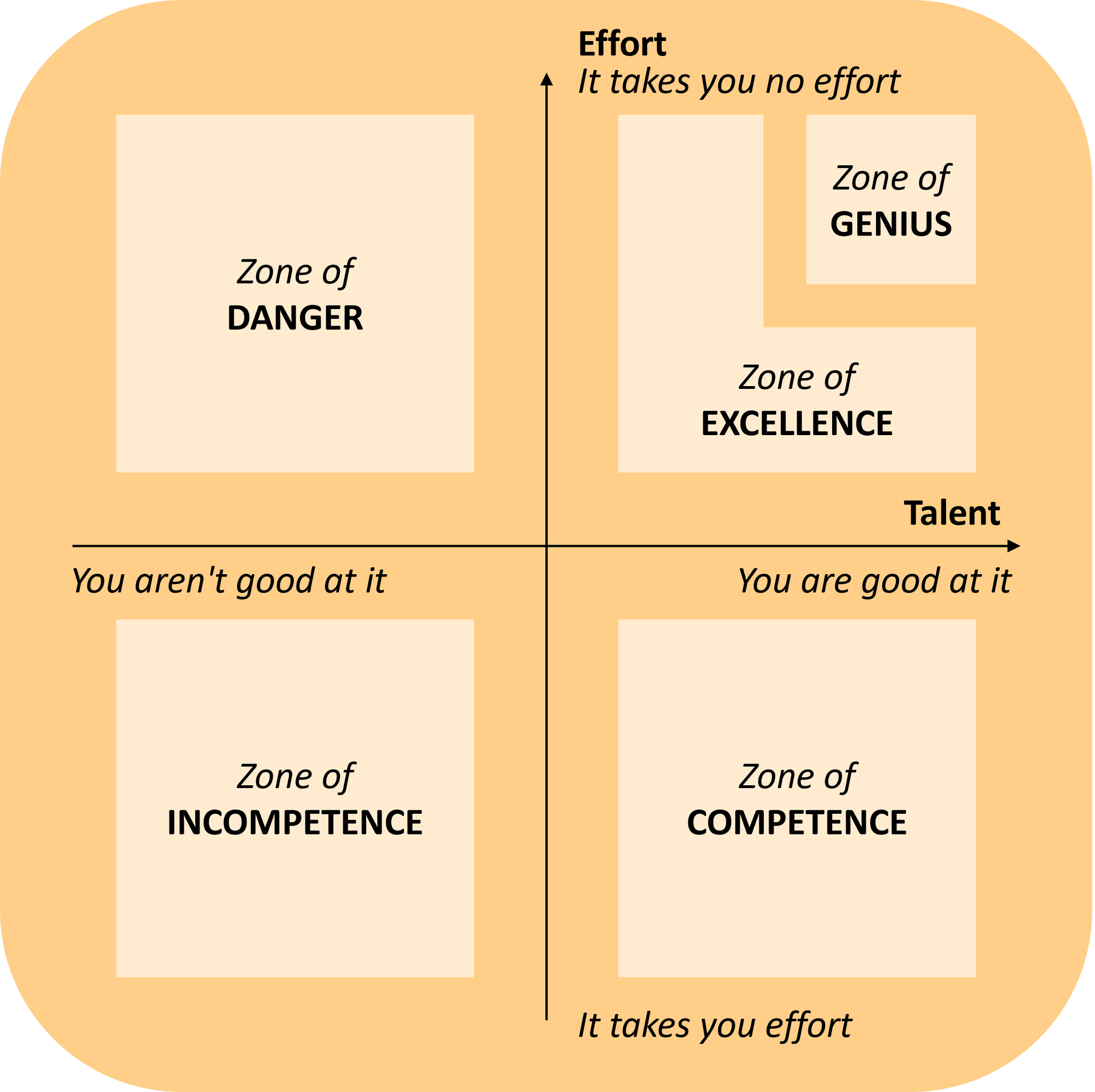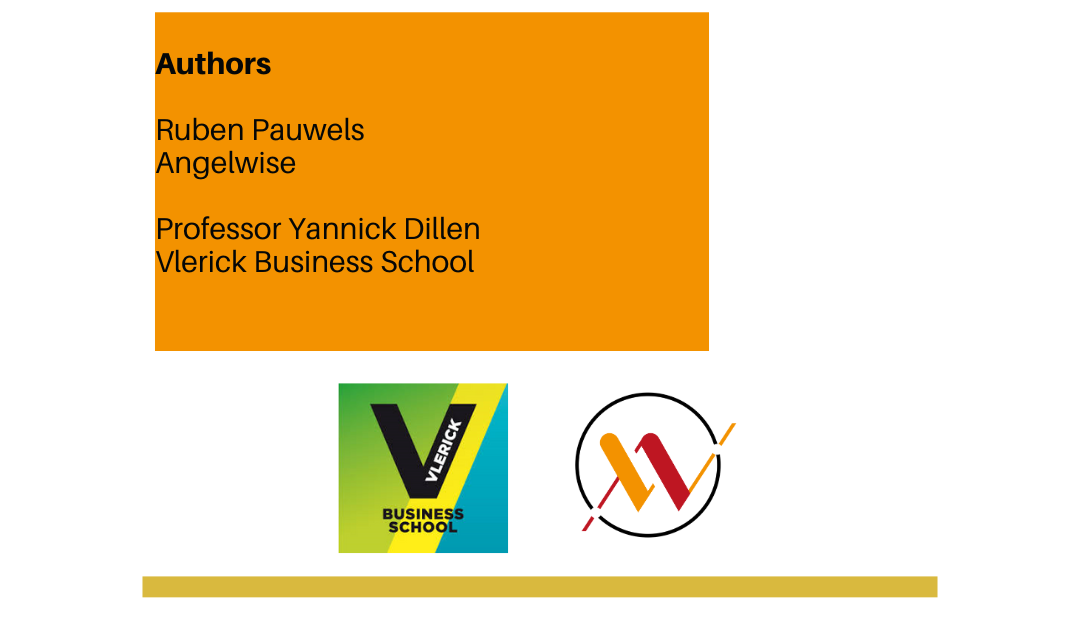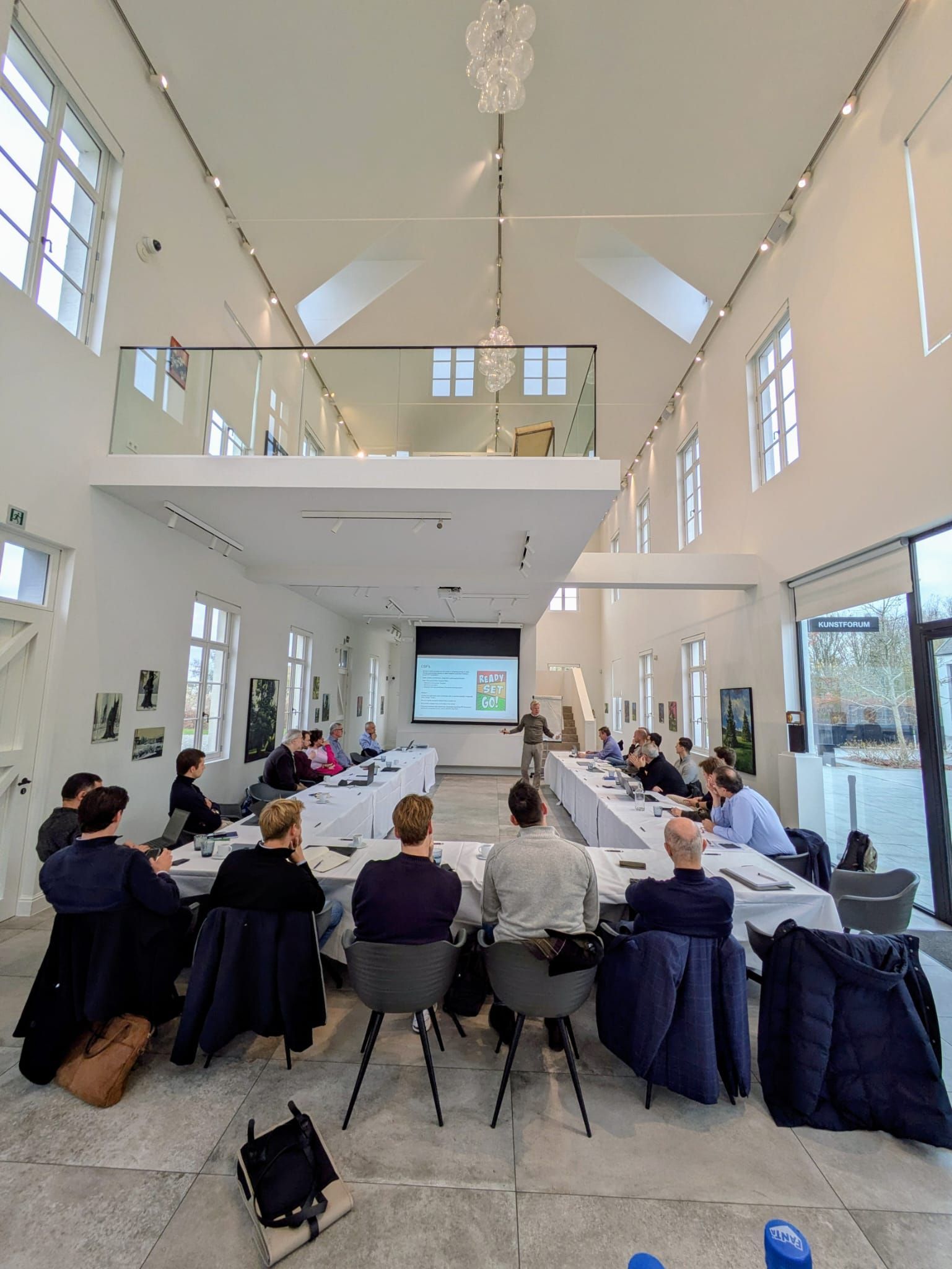The entrepreneurial journey towards growth
This article is a collaborative effort between Angelwise and Professor Yannick Dillen of Vlerick Business School.
It delves into the concept of the "zone of genius" and its significance in the entrepreneurial journey. It emphasizes the importance of self-awareness and self-reflection in identifying one's zone of genius and offers practical tips for utilizing this knowledge to establish a successful startup that stands out from the rest. Understanding your zone of genius can be a powerful tool for driving success, whether you are embarking on your entrepreneurial journey or seeking to take your growing business to new heights.
Framework: Zone of Genius
The zone of genius framework, which was first introduced by Gay Hendricks in his book "The Big Leap" in 2009, has gained popularity in recent years as a means of identifying personal expertise or passion that can be harnessed to create value and achieve success. The framework suggests that everyone has a unique set of skills, talents, and interests that defines their zone of genius. To unlock one's full potential, it is crucial to focus on developing and utilizing these strengths. When a person is in their zone of genius, they experience a state of "flow" and are fully engaged in their work, resulting in exceptional outcomes.
To identify your zone of genius, consider your natural inclinations, enjoyable tasks, and areas of excellence. Once you have identified your zone of genius, focus on developing those strengths and finding ways to apply them in your work and personal life. Doing so can increase your success and fulfillment and even help you discover your true calling in life.
Angelwise has reinterpreted the framework in the graph below, retaining the original axes. The horizontal axis represents an individual's talent level for a particular task, which can be measured against the performance of others. The vertical axis indicates the level of effort required to complete a task, which is measured against the amount of mental energy expended.
To illustrate this definition, let us consider two individuals, A and B, attending a large networking event. Both individuals accomplish their goals for the event and make meaningful connections, resulting in a positive return on investment. However, A feels as though it was just another ordinary day and could easily repeat the experience the following day. On the other hand, B returns home and collapses on the couch, removing their shoes and exhaling a sigh of relief. B expended significant mental effort to remain present at the event, and doing so every day would prove to be a challenge.

The previously given example of person A and B highlights the distinction between the zone of competence and the zone of excellence/genius within the framework.
One may question the rationale behind distinguishing between the zone of genius and the zone of excellence. The zone of genius is marked by the ability to carry out tasks with exceptional skill and ease, consistently producing positive outcomes. On the other hand, the zone of excellence necessitates a significant increase in effort to attain the same level of performance, and may not always result in the same level of repeated success as seen in the zone of genius. Essentially, individuals operating in the zone of genius can achieve the same results with less effort or accomplish superior outcomes with the same level of effort. This ability to consistently outperform oneself in the zone of genius is what sets it apart from the zone of excellence.
The zone located in the top left corner, where it takes no effort to perform poorly, appears to be a paradox. However, we introduce an extension to the existing framework. This zone is known as the zone of danger, and it encompasses tasks that require no effort for the individual but yield poor return on investment when compared to others. This can be a pitfall for many people or entrepreneurs who concentrate on areas in which they are not necessarily skilled (e.g. people management) but which seem effortless to them.
The entrepreneurial journey towards growth
The research of Prof. dr. Yannick Dillen of Vlerick Business School shows how companies that keep growing for prolonged periods all have similar characteristics:
- Superior product/service
- Active with innovations in a growing sector/industry
- Visionary entrepreneur with a culture of growth
- Talented people & performant processes
- Exploring new markets
- Strategic alignment between all stakeholders
- Investing for the longer term (infrastructure, development, marketing, etc.)
To achieve these characteristics, it is essential that the entrepreneur has the right focus on the growth process. Two different sets of skills are needed to generate sustainable growth:
Entrepreneurship is the process of starting and running a business, often involving the creation of a new product or service and the assumption of financial risk to bring that product or service to market. It is a journey of discovery, innovation, and risk-taking as entrepreneurs seek to identify and solve problems, create value, and meet customers’ needs.
Management, on the other hand, is the process of planning, organizing, leading, and controlling the activities of a group of people to achieve a common goal. Managers are responsible for setting objectives, developing strategies, allocating resources, and leading and motivating a team to achieve those objectives.
Entrepreneurship and management involve different sets of skills and responsibilities. Entrepreneurs are often focused on innovation and risk-taking, while managers are responsible for implementing processes and systems to achieve operational efficiency and success. Both entrepreneurship and management are important for the success of any organization, and many successful entrepreneurs should ideally also excel at management.
In short, the evolution of tasks of an entrepreneur in a startup can be summarized as follows:

The startup journey towards success: becoming an entrepreneur again.
As an entrepreneur, it is important to continually reassess and adapt your role in the company. The exploration phase, where you are focused on discovering new opportunities and developing your product or service, is an important starting point. As the business grows and begins to generate revenue, the focus may shift to the exploitation phase, where the goal is to optimize and streamline processes to maximize efficiency and profitability.
However, it is also important to continue thinking about the future growth and development of the business. This may involve returning to an exploration mindset and focusing on identifying new opportunities for growth, such as expanding into new markets or introducing new products or services. This process of alternating between exploration and exploitation can help a business stay innovative and adaptable in the face of changing market conditions. This third step can be seen as a third phase back towards entrepreneurship, in the process of building a company that is continually expanding.

The startup journey towards success: becoming an automated engine
We can define 4 steps or phases in the road towards growth by combining the previous described frameworks.
1) Exploring
During the initial phase, entrepreneurs may focus on identifying a problem or need in the market and developing a solution for it. This may involve conducting market research, developing a prototype or MVP, and testing the product or service with potential customers. The entrepreneurs are responsible to perform all the tasks, with many of them outside their genius zone or even zone of competence. This can be hard, exhausting and discouraging. When the first signs of problem-solution fit, they can start hiring their first employees.
2) Building a team
In the team building phase, the entrepreneurs must focus on building a team of skilled and dedicated individuals to help bring the product or service to market. This will involve hiring employees, recruiting advisors or mentors, and building partnerships with other organizations. It is important that the skills that are in the entrepreneur’s incompetence zone are covered in the zone of competence, excellence or genius of the employees or advisors. When the team grows, the entrepreneurs will start shifting their focus from exploration towards exploitation, this can be seen as a first step to becoming managers.
3) Processes and the foundations of growth
In the growth phase of a business, the entrepreneurs must focus on expanding the reach of the product or service and increasing revenue. This may involve marketing and sales efforts, as well as developing new features or capabilities to meet the needs of a growing customer base.
As the business grows and becomes more successful, it will become necessary to implement systems and processes to manage and scale the business more effectively. This may involve automating certain tasks or processes to increase efficiency and reduce the need for manual steps.
In this step the entrepreneurs must behave more as manager, as the strategy and product-market fit are clear. He or she can focus on growing the business based on a proven expansion strategy. It is essential that the entrepreneurs delegate those tasks where he or she does not excel at or that take too much energy.
4) Automated engine
Finally, when the company is running “smooth”, the entrepreneurs can fully return to their genius zone. Usually, we notice that entrepreneurs want to go back to where it all started for them: finding new market opportunities, implementing new technologies, being the evangelist …
Overall, this rebirth of the entrepreneurs, involves a combination of strategy, execution, and continuous learning and adaptation as the business grows and evolves.
Reflection: What does this mean for a startup founder?
When building a company from the ground up, we have shown that the role of the founders will evolve over time. It is important that founders think about where in the organization they want to end up when they are successful with their startup. This will help them to hire the right people with the right skill set and build a great team that is fit for purpose. It will also help them survive in the demanding startup environment. 87% of startup employees said that working at a startup had negatively impacted their mental health at some point, a Sifted survey of 133 readers from across Europe found.
Be aware that investors can ask questions, either directly or indirectly, linked to these frameworks:
- In what stage are you now, as an entrepreneur/manager? Do you have the right skills to perform your current role? What people should you hire? What responsibilities should you keep or delegate to your team?
- In what stage is your company? Is the current plan (financial, product, growth, internationalization …) in line with the stage of your company (team set-up, level of manual work, sales processes …). How is this reflected in your capital need?
What is your genius zone?
Note that this framework is not taking into account the personal life choices of the entrepreneur.
Are you aware of your genius zone? Do you use such a framework in your daily operations, e.g. to consider the profiles of new hires?
Share your ideas and viewpoints with us, and we might take them up in another newsletter or blogpost.
Contact us at mail@angelwise.be






